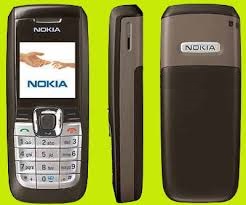I don’t have a smartphone. I’ve fiddled with them, and I use one for app development. But the mobile device I actually use for day-to-day phone communication is an ancient Nokia 2610b.
I’ve never had any issues with call quality, or any other problems with this phone. It lets me download media from arbitrary web locations and use any sound file as a ring or other tone. It’s sturdy; I literally use it as a beer bottle opener. Of course it doesn’t have a full keyboard, and the buttons are tiny, but I’m no rapid-fire texter anyway. The display is very basic, but it works for me.
I’ve been tempted on many occasions to buy a smartphone. The coolness factor alone has almost triumphed, but so far I’ve resisted its lure. Sure, smartphones can do lots of cool stuff, and I have no doubt that if I owned one, I’d spend a lot of time playing with it. But in the end, the only features I would really use are the phone, contacts, text messages (including alerts from Google Calendar), and occasionally the timer and alarm.
Until today, I thought I might end up using the 2610b until it died (which is unlikely), the battery stopped holding a charge (original battery is still going strong), or somehow it was no longer supported by my carrier (also unlikely).
What changed my mind? Microsoft released a mobile version of Remote Desktop. That’s the software I use to remotely control the Windows PCs I administer. I use it to administer the media computer downstairs, and the server next to me. I use it to manage client computers in this and other cities. And I use it to access my main PC when I’m elsewhere. It’s indispensable. And now it runs on Android and iPhone devices.
This changes everything: now I have a valid reason to buy a smartphone. But I’ll continue to resist as long as I can.
 boot13
boot13